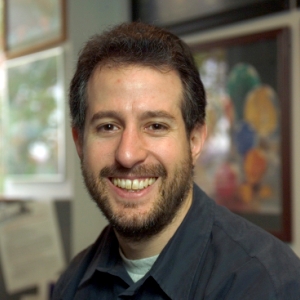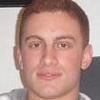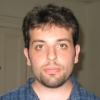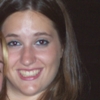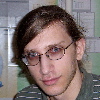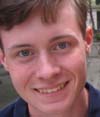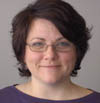CS211 Course Information
Welcome to CS211!
This web site contains a wealth of useful information that we have compiled for
your benefit. Please take some time to review it and familiarize yourself
with its contents so that you know where to find the information you need
quickly when you need it. You are responsible for following all the
policies and procedures stated on this website.
Course Description
| Name |
COM S 211/ENGRD 211: Computers and Programming |
| Semesters Offered |
fall, spring, summer |
| Credit Hours |
3 |
| Prerequisites |
COM S 100 or an equivalent course in Java or C++ |
| Grade Option |
Letter or S/U |
| Course Description |
Intermediate programming in a high-level language and introduction to computer
science. Topics include program structure and organization, modules
(classes), program development, proofs of program correctness, recursion, data
structures and types (lists, stacks, queues, trees), object-oriented
programming, and analysis of algorithms. Java is the principal
programming language. |
| Course Website |
http://www.cs.cornell.edu/courses/cs211/ |
| Course Newsgroup |
cornell.class.cs211 |
In CS211, you are expected to learn:
- Concepts in modern programming languages, which include classes, objects, inheritance, recursion, and generic programming.
- Data structures such as lists, stacks, queues, trees, hash tables, and collections.
- Java Foundation Classes (JFC), which are in the Java Application Programmer Interface (API).
- The ability to produce correct, well-structured, and readable code.
A complete listing of course topics can be found at Lecture Notes.
Refer to posted advice for information about other introductory programming courses if you need help
in deciding whether or not to take CS211.
Staff
Teaching Assistants
The teaching assistants (TAs) mainly teach recitation sections and assist with homework and exams. We
encourage you to attend their office hours if you have difficulties in the
course. You can make an appointment with any TA by e-mail.
Consultants
In addition to TAs, there are a number of consultants. These are are
undergraduates who have excelled in their coursework and are employed as
graders and tutors for CS211. See the section on
Consulting for locations and hours, below.
Consulting
Locations and Hours
- Consultants are currently located in
Upson 360 most afternoons and evenings. We also hold hours in
RPCC (see 2nd table below).
- Consulting runs only when Cornell is in session.
- Consulting hours end at 6pm on a day following assignment due date and 7pm on a prelim day.
- There will be no consulting during official breaks.
- Consulting ends on the last shift on the last week of classes.
Upson 360
| Times (PM) |
Sun |
Mon |
Tue |
Wed |
Thu |
Fri |
| 1:25 |
|
George/Chris |
Will |
Jonathan |
|
|
| 2:30 |
Mori |
George |
Jared/Will |
George/MAP |
|
Mori |
| 3:35 |
Mori |
Jared |
Jared |
Jonathan/George |
Greg (3) |
Mori |
| 4:45 |
Mori |
Jared/Jonathan/ |
MJP |
Matt/MAP |
Greg |
|
| 6:00 |
|
Jonathan |
Chris/MJP |
Chris/Venkat |
|
|
| 7:00 |
|
Will/Udom |
Chris/Marius |
Chris/Venkat |
|
|
| 8:00 |
|
Will/Udom |
Marius/Udom/Homan |
Venkat/Adam |
|
|
| 9:00 |
|
|
Marius/Udom/Homan |
MJP/Adam |
|
|
RPCC
RPCC consulting takes place in the computer
lab. Look for a sign on one of the tables that reads 211 Consulting
| Times (PM) |
Sun |
Mon |
Tue |
Wed |
| 4:00 |
Matt/Anton |
|
|
|
| 5:00 |
Matt/MAP |
Vivek |
|
Richard |
| 6:00 |
MAP/Marius |
Vivek |
Anton |
Richard |
| 7:00 |
Marius/Adam |
Vivek |
Matt/Anton |
Richard |
| 8:00 |
Adam/Venkat |
Vivek |
Matt/Anton |
Richard |
Consulting Policies
- Occasionally, consultants need to adjust their hours, which are updated outside their office and on-line.
- Start your assignments early! Ask the consultants for help after you have tried your best and still cannot figure something out.
- Ask specific questions! The consultants may ask you to leave if you are doing something else until a question occurs to you.
- Do not expect the consultants to debug your code and proofread your work. That's your job.
- Do not "hang out" or work in the consulting room.
- Do not store your work in the consulting room.
Want to Be a Consultant?
CS211 and many other CS courses are always looking for great consultants.
In general, CS211 is the launch pad for many courses. In addition, our
best consultants can become undergraduate TAs. If you get at least an A-
in CS211, check out this website:
http://www.cs.cornell.edu/ugrad/Consulting.html.
Reading and Textbooks
Reading assignments are posted along with the lecture notes and examples in
Lecture Notes. The sources listed here will be on reserve in the Engineering Library in Carpenter Hall.
Required Text
Optional Reading
-
Data Structures and Problem Solving Using Java (3/E), by Mark Allen Weiss,
Addison Wesley, ISBN: 0-321-32213-4, 2006.
See also Weiss's website for additional material. This was the required text used last semester.
-
Program development in Java: Abstraction, Specification, and Object-Oriented Design,
B. Liskov and J. Guttag, Addison-Wesley, ISBN: 0201657686, 2000. This is an excellent
source of material on designing and specifying abstractions.
-
Java Precisely,
P. Sestoft, 2nd Ed., The MIT Press, 2005. To access the entire book for free,
log in via the Cornell Library.
book for free (select Books24x7.com).
-
Java in a
Nutshell (5th ed), Flanagan, O'Reilly, 2005.
- More free books via Cornell's E-books.
Java Help & Software
Which Version?
We will the use the Java 5 (or 1.5) Platform, Standard Edition (Java SE), which consists of the Java
Development Kit (JDK) and the Java Runtime Environment (JRE). Although the latest version is Java SE 6, we have
encountered some compatibility issues.
If you are using a version of Java prior to Java 5, such as J2SE 1.4, you must upgrade.
We will be using features that were introduced in Java 5, such as generics,
autoboxing, and typesafe enums. These features are described in following sources:
Java Bootcamp
For students with limited Java experience, we will hold a Java Bootcamp,
which involves about three hours of self-guided training in Java. The Bootcamp is a self-guided, self-paced tutorial that
summarizes key issues of Java's syntax that are usually covered in CS100. Students can download the material
and solutions. Or, you can attend two identical sessions with course staff that will answer questions as you work your
way through the material. If you have never programmed in Java, have not programmed in a long time, or feel that your
skills are a bit weak, we strongly suggest that you attend the Bootcamp.
More Ways To Catch Up
- Review the Bootcamp notes, introductory chapters in the textbooks, and the Java reference books.
- See Sun's official Java Tutorial.
- Get the Java Precisely book, which is listed in Reading and Textbooks.
- Get the O'Reilly book Java in a Nutshell, which is listed in Reading and Textbooks.
- Refer to CS100 websites, such as
CS100J Fall 2001, which has numerous examples.
- Review the Java language summaries in the course textbook.
- For students with C++ experience, see
http://www.perryland.com/Java2.shtml to compare C++ with Java.
Obtain Java
The Java is already installed in CIT and ACCEL labs. However, installing it own
your own machine will greatly facilitate your work. Please note that you should double check your work in
a public lab, privately owned machines occasionally exhibit different behaviors to a program.
Windows and Unix
To download Java 5, click on Sun's Java
site and download either JDK 5.0 Update 10 with NetBeans 5.5 or JDK 5.0 Update 10.
Follow the instructions. To make Java easy to use at the command line,
refer to Section 2.4 in Applications Help on our website.
Mac
As of Fall 2005, the standard Java site does not have links for Macs.
However, the following information should help, assuming you are not
running an "archaic" version of Mac OS. Unfortunately, you will need
to upgrade your operating system to 10.4 or later.
Steps:
- Follow the instructions from
Apple's website.
- Next, run the Java Preferences application found in
the /Applications/Utilities/Java/J2SE 5.0 folder.
- After launching this program, you must drag J2SE 5.0
to the top of the list under Java Application Runtime
Settings. The Applets menu at the top is
optional--it allows you to choose which version of Java to run applets in
browsers.
- Click Save to activate and retain the settings.
Development Environments
The best way to develop Java programs is with an Integrated Development
Environment (IDE). We recommend Eclipse, but you may use any IDE that
you like, or just a text editor if you prefer. Many of these are
already installed in the labs.
Lecture
You are expected to attend all lectures.
Registration Information
There are two ways to register:
- ENGRD 211: All engineering students usually sign up for ENGRD 211 regardless of their major. However, Engineering
advising tells us that they no longer care if engineering students sign up for COM S 211.
- COM S 211: All other students should sign up for COM S 211.
Note that ENGRD 211 and COM S 211 are the same course (which we usually call just CS211),
so do not sign up for both! The difference is purely administrative so that the College of Engineering can keep track of how
many of its students use this course to fulfill a distribution requirement.
| ENGRD Course ID |
372-513 |
| COM S Course ID |
341-867 |
| Lecture |
01 |
| Days |
TR |
| Time |
10:10–11:00am |
| Location |
Olin 155 |
Conduct
We expect the following conduct of all students:
- Arrive on time.
- Please avoid walking in front of or behind the instructor.
- Turn off cell phones, beepers, and pagers.
- You may use a portable computer, such as a laptop or PDA, as long as you turn the volume off.
- Do not read the newspaper during lecture.
- Raise your hand to ask a question. If the instructor does not see you, call out politely.
- Do not rustle papers or snap binders at the end of class while the instructor is still talking. Wait until the
class is dismissed.
We prefer class participation, so please feel free to raise your hand to contribute to the class discussion.
Lecture Notes
We put most of our files for lecture notes, corresponding readings, and examples
at the Lecture Notes link, usually just before
or after lecture. Not all material covered in lecture will necessarily be
online, so please do not email us about it. On the other hand, sometimes
the lecture notes will contain extra material for you to review outside of
class, and you are responsible for this material.
Section
You are expected to attend a recitation section once per week. Section
will cover some material not covered in lecture and provide an opportunity for
questions on recent material, assignments, and exams. You may attend any
recitation section, but we prefer that you select one and stay with it.
Registration Information
The current sections are as follows:
ENGRD
Course ID |
COM S
Course ID |
Section |
Day |
Time |
Place |
Instructor(s) |
| 372-562 |
341-916 |
1 |
T |
1220-0110P |
Hollister 320 |
Andrew Tibbits |
| 372-611 |
341-965 |
2 |
T |
0125-0215P |
Upson 215 |
Alec Bernston
Parvati Iyer |
| 372-660 |
342-014 |
3 |
T |
0230-0320P |
Upson 211 |
Nikos Karampatziakis
Andrew Tibbits |
| 372-709 |
342-070 |
4 |
W |
1220-0110P |
Phillips 307 |
Alec Bernston
Andrew Salamatov |
| 372-758 |
345-119 |
5 |
W |
0125-0215P |
Upson 109 |
Caitie Mccaffrey
Christopher Estela |
| 372-856 |
345-217 |
7 |
T |
1220-0110P |
Upson 211 |
Parvati Iyer
Maksim Orlovich |
| 372-905 |
345-266 |
8 |
T |
0125-0215P |
Hollister 306 |
Michael Sutjipto |
| 373-010 |
345-364 |
10 |
W |
0125-0215P |
Olin 218 |
Maksim Orlovich
Michael Sutjipto |
Occasionally section instructors might temporarily move their section to a
computer lab. Pay attention to announcements to keep track of these potential
room changes.
Conduct
Generally, expectations for section are the same as for lecture.
Section Notes
Notes and examples will be posted occasionally in the Section Notes link.
Assignments
General Information
You will have five mandatory assignments to complete for the
semester, which we will post below and on CMS. You might need to look in both
places for additional files:
| # |
Due Date |
Assignment |
Solutions/GG |
Supervisor(s) |
| A1 |
Wed, 2/7
11:59PM
|
A1
A1.zip
Hospital.jar |
|
Alec, Pavati, Kim |
| A2 |
Sun., 2/25
11:59PM |
A2
a2.jar
Prob 3 docs
a2p4.zip
|
|
Maksim, Catie, Chris |
| A3 |
Wed 3/14
11:59PM |
A3
a3.jar
a3source.zip
text.txt
Prob 3 docs
|
|
Nikos, Andrew T., Andrew S. |
| A4 |
Fri 4/13
11:59PM |
A4
A4Release.zip |
|
Parvati, Mike, Catie |
| A5 |
Thu 5/3
11:59PM |
A5
A5Release.zip
A5Solution.jar
Icons.zip |
|
Alec, Andrew S., Kim |
Partners
You must follow the rules of Academic Integrity (AI).
In addition, you must follow these rules concerning partners, unless we post otherwise:
- You may work with one partner or by yourself for each assignment, unless specified otherwise.
- You must work with the same partner for all parts of the same assignment.
- You may not change partners or drop a partner once you have started working on an assignment.
- You may only "divorce" your partner(s) after you submit an assignment.
- You may change partners for a new assignment.
- You share equal responsibility with your partner for completing the assignment and for maintaining academic integrity.
Submission
You must submit your work on-line via the
Course Management System (CMS):
- Submit your work in advance of the deadline. Refer to the Late Policy, below.
- Never e-mail files to the course staff.
If you are not working with a partner:
- Click on the submit button to upload (submit) the file(s).
- For each requested file, click Browse... to locate your file. It does not matter if your
filename differs from the requested filename.
- Click upload.
If you work with a partner, you must coordinate with your partner well in advance of the due date and time!
Unless we carry over partnerships from a previous assignment, you have to invite each other on CMS, as follows:
- Click the groups button to register your group before submitting files.
- Enter your partner's NetID.
- Click Invite.
- Now your partner must login to CMS and accept your invitation.
- Either partner can submit the files as described in the instructions for a single person above.
You can find detailed instructions by clicking Help in CMS.
Format Requirements
File Size
- Each requested file has a size limit that is much bigger than a typical, correct file.
- If CMS reports that your file is too big, the usual reason is that you submitted a file in an incorrect format.
- Once CMS accepts an uploaded file, it will display the time of upload and the size of the uploaded file. The file
size is one way for you to check that you submitted the file that you intended to submit.
What Files to Include:
- Include all files that we indicate on the assignment.
- If we do not indicate specific files, you must include all programs and solution write-ups. So, you must include
every file with a
.java extension along with other work we might have assigned.
- All files must have an extension that relates to its contents. For example, Java=
.java;
MATLAB=.m; Text=.txt; PDF=.pdf; Zip=.zip.
- For Java programs, do not include package declarations such as
package cs1;.
- Do not include extraneous files:
.class files, files that your IDE produces, or any other file that
does not pertain to the assignment.
You may include a readme.txt file, as explained below.
- You may include a brief
readme.txt if there special features or issues about your code that you need to
communicate to the grading staff.
- Filenames: Unless specified, write each Java class in a separate file. The name of the class must match
the name of the file. If you are instructed to write multiple classes in the same file, only one class
can be
public (usually the Main Class, the class that contains main).
- When instructed to zip files together, you must use a format that
WinZip will understand on Windows
XP.
Compilers and IDES::
- You must submit code that compiles, even if you have trouble getting it to run properly.
We will be recompiling all of your code and running it. You must test your code at the command line
with the JDK on Windows XP (see any public CIT lab) to ensure that your program works.
- Although we occasionally advocate certain IDEs, like DrJava and Eclipse, your code must always be able to run
at the command line with the required version of Java. Refer to Course Info's "Java
Help & Software" link for information about the required version Java and how to use the command line.
- Why? Various IDEs occasionally exhibit different behaviors, and yes, sometimes have bugs. Generally, you shouldn't
have to worry. But once in awhile something does pop up. We repeat: check your code at the command line!
Commenting/Style/Discussion
- Style counts! Follow the good style conventions for code elements, layout, and commenting. For advice on Java style,
investigate these resources:
- Do not include extraneous text in your programs, like debugging statements and superfluous comments.
Also, if you answer discussion questions inside a program, you must comment out the text, because
we are running all of your code.
- Do not use "fancy" formatting in discussion questions. Use
ASCII text format (see this link to learn about writing resumes, too). If you absolutely must
format your
discussion answers, print your work to PostScript or PDF.
- Place a comment block at the top of each file that you have created. The block must give the assignment number,
due date, and the name(s), NetID(s), and CUID(s) of the creator(s). For example,
/**********************************
* Assignment 0: Example format
* Date: 1/1/1111
*
* Tad Morose: tm0, 123456
* Slough Feg: sl0, 654321
**********************************/ |
Late Policy
Submit your assignments on time and well before the deadline. (CMS tends to lag right near the deadline if too many
students wait until the last minute.) However, you may submit your assignment late until we post the solutions with a
15% penalty off your total score. If you submit only a portion of an assignment late (i.e., one of the problems),
your entire assignment score will still be penalized.
Note that CMS allows us to choose a grace period when we post an assignment. We will use Math.random()
to pick a grace period that ranges from 0 to 1 hour 59 minutes.
We will deal with work submitted past the late deadline on a case-by-case basis. Extensions will be granted only
in exceptional circumstances, such as Illness, and only with approval (preferably prior!) by one
of the instructors.
Grading
The main assignments receive scores out of 100 points. At the very least,
all of your code must compile without warnings or exceptions. If it does
not, we will not debug your code and you may receive a grade of zero. We
also expect you to follow the submission format requirements, described above.
We try to grade each assignment within a few days after the due date.
We strongly recommend that you review the grading comments,
which are posted on CMS. Each time you get something wrong, we label the
mistake with a code. The codes are posted on the Assignments
in files with names, like "a3ggcs211sp07.txt" (Assignment 3 Grading Guide for CS211 Spring 2007).
You may receive bonus points for exceptionally fine work. If you receive
any bonus points, those points are counted separately and accumulate in a
single bonus score for the semester. Refer to Grading
for an explanation of how bonus points can influence your grade.
If you feel we have made a mistake in grading, you may request a regrade.
Refer to the Regrades section for details.
Exams
Requirements
You are required to take two prelims and a final exam. Please see the table below for general information:
| Exam |
Date/Time |
Location |
Review Session(s) |
Topics |
Prelim Supervisor |
Prelim 1
Solutions
GradingGuide
RefinedGradingGuide
Stats
|
Thursday, March 8
7:30-9:00pm |
Uris Aud |
Wednesday 3/7, 7:30-9pm & 9-10:30pm
(both sessions are identical) Upson B17
|
All material up to, and including, Lecture 10 (2/22). Past exams have typically had problems on
induction, recursion, inheritance, parsing, lists, and trees. For example, see Spring 2005. |
Nikos, Caitie |
Prelim 2
Solutions
Grading Guide
Stats
|
Tuesday, April 17
7:30-9:00pm |
Uris Aud |
Sunday 4/15,1:30-3:00pm, Kimball B11 |
See Lecture 20 (Graphs) announcements. |
Parvati, Chris |
| Final Exam |
Monday, May 14
9:00-11:30am |
Uris Aud |
Sunday, 5/13/07
1:30-3:00
Room: KB B11 |
See Lec. 26 notes |
Maksim, Mike |
Conflicts
Do you have a conflict with another exam or other university-sponsored event?
- First try rescheduling the event conflicting with the CS211 exam. For exams, refer to the
official schedule
to check for conflicts. If your other exam is not listed, the other instructor is obligated to give you the
makeup exam.
- If you have exhausted other means for rescheduling your conflict, you must contact the
Kelly at least two weeks before the exam.
You must explain the nature of the conflict and provide documentation. You might be eligible to take
an early prelim offering at 5:45-7:15 PM. We do not usually offer makeup exams at any other time.
- If you miss an exam because of a serious matter like illness, see the section on Illness.
Note that we do not offer makeup final exams to students who take another course that overlaps with CS211. For example,
if you take CS211 and CS312, both courses have identical meeting times, and thus, identical final exam times. The Courses of Study states the
following in the section regarding Class Attendance: "Students are expected to be present throughout each semester at all meetings of courses for
which they are registered." The Dean of Faculty and the Engineering Registrar informed us that courses are not obligated to provide makeup exams
for students taking concurrent courses.
Retrieving
We distribute prelims in 360 Upson (M-F, 10:00am–noon and 2:00pm–4:00pm)
usually the day after the prelim. Bring your student ID card. Final
exams may be reviewed the following semester, but may not be taken from the room.
Note that this room also holds CS211 consulting,
but our consultants work in a different area than the distribution center.
Grading
Exams are graded out of 100 points. As with assignments, you may request a
regrade. If we assign bonus points, these are added to your bonus point total for the semester.
Past Exams
Note that previous versions of CS211 had different organizations, but the following exams should
give you plenty of practice problems.
Prelim 1:
- Spring 2002: exam, solutions
- Fall 2002: exam & solutions
- Spring 2003: exam, solutions,
Java files
- Fall 2003: exam, solutions
- Spring 2004: exam, solutions
- Fall 2004: exam and solutions
- Spring 2005: exam, solutions,
grading guide
- Fall 2005: exam, solutions
grading guide
- Spring 2006: exam & solutions,
grading guide
- Fall 2006: exam & solutions,
Errata and updates,
grading guide
Prelim 2:
- Spring 2002: exam, solutions
- Fall 2002: exam & solutions
- Spring 2003: exam, solutions,
Java files
- Fall 2003: exam, solutions
- Spring 2004: exam, solutions
- Fall 2004: exam and solutions
- Spring 2005: exam, solutions,
grading guide
- Fall 2005: solutions,
grading guide
- Spring 2006: exam,
solutions
- Fall 2006: exam & solutions,
grading guide
Final:
Quizzes
This semester, CS211 will have occasional quizzes, which are brief tests or exercises. We hold
quizzes in class or post on-line.
When? Where?
We may give a quiz at any time during any regularly scheduled classtime (lecture or section). Note that we
might even give a quiz at the beginning and end of lecture.
Grading
We will grade quizzes in a binary fashion:
- 0: you made either no attempt or missed the quiz.
- 1: you made an attempt at solving the problem(s).
We will count a certain percentage of the quizzes towards your final grades. So, it might be
possible to miss some without hurting your grade. We may also convert excess quiz points to
bonus points.
Grading
Weights
Your final numerical score will be a weighted combination of your scores for all
required course work. Note that A=assignment, P=prelim, Q=quiz, F=final, and
E=evaluation, which is the university course evaluation:
Assignments
(44%) |
Quizzes
(5%) |
Exams
(50%) |
Eval
(1%) |
| A1 |
A2 |
A3 |
A4 |
A5 |
Q |
P1 |
P2 |
F |
E |
| 8 |
9 |
9 |
9 |
9 |
5 |
15 |
15 |
20 |
1 |
Note the evaluation is the university evaluation. We get a list of people who fill it out—the university keeps your responses anonymous.
We reserve the right to change the relative weights.
Grade Computation
We will determine your letter grade for the course using your final numerical
score and predetermined grade cutoffs as given in the following
table. These are numerical scores that will guarantee you at least a
certain letter grade, regardless of how the rest of the class performs.
| A score of |
guarantees at least |
| 90 |
A |
| 80 |
B |
| 70 |
C |
| 50 |
better than F |
Note the following:
- We may choose to lower the cutoffs based on the overall class performance on all
course work, but we will never raise them, which would be unfair to you.
- Bonus points may also influence some students' grades after all letter grades are set.
In general, letter grades tend to split approximately into thirds for As, Bs, and Cs.
But if everyone receives a final numerical grade of 90 or better this semester, everyone would get at least an A. Who knows? It
might happen some day.
Regrades
For all graded work, you always have an opportunity to request a regrade
if you feel we have made a mistake in the grading or simply to request a
clarification. To make a regrade request, you need to explain in
words what you feel is wrong or what you do not understand. For each
assignment and exam, there is a deadline for regrade requests, normally one
week after the grading guide and solutions have been posted. The
assignment/exam supervisor (see Assignments and
Exams) will process the requests after the regrade deadline has passed. Regrade comments are either posted on
CMS (usually for assignments) or returned in the consulting office (usually for prelims) as explained below.
Policies
- You may submit a regrade request on any graded assignment or exam to correct mistakes or request clarifications.
- We reserve the right to regrade the entire submission.
As a result, we might raise or lower your entire score. This applies to the final exam as well, which may affect your course grade.
- We will announce when regrades are completed.
- Do not e-mail the course staff to request a regrade unless you have a unique situation that our system cannot handle.
- For assignments and prelims, you must submit your request within one week of the posting of both the grading guide and solutions,
unless otherwise posted. For final exams, you have until the end of the last day of classes of the following semester.
- Final exams do not get handed back, but you may review them in Upson 360 starting the second week of classes in the following
semester.
Procedure
Assignments:
- Use CMS.
- Under CMS, view the Help screen for information on the regrade facility.
- In the regrade box, type your request clearly and succinctly. Refer to specific portions of your code and the grading guide.
- If you need to submit a file, or if CMS's text box does not suffice, write in
the text box that you need to communicate with the assignment supervisor.
- Do not contact the assignment supervisor directly unless the issue is time sensitive.
- Completed regrades can be viewed under CMS.
Prelims:
- Do not use CMS unless otherwise instructed.
- Retrieve your exam from the assignment distribution center in 360 Upson. Bring your student ID!
- Fill out a regrade form. CS211 consultants will also have some copies.
Write your request
clearly and succinctly. Refer to specific portions of your code and the grading guide.
- Staple the form to the front of the exam and submit the request to a CS211 consultant during regular consulting
hours in Upson 360.
- Ensure that the consultant on duty logs your request.
- Completed regrades can be retrieved from the consulting office. We will announce when regrades are complete.
Final Exam:
- Wait until the fourth week of classes.
- Bring your Cornell ID to the consulting office during posted consulting hours.
- Ask a consultant to review your final. The exam must stay in the room.
- Fill out a regrade form, which you will find in of 360 Upson. You must indicate
David I. Schwartz and dis@cs.cornell.edu on the form. If you wish to obtain
your new grade from DIS by e-mail, please state that request on the form.
- Give the form to the consultant, who will log the request and alert the former instructor of the request.
- Regrades are usually processed within 2 weeks. You will have to return to the
consulting office if you did not give permission for us to e-mail you the grade, as stated above.
Advice
In regrades, the burden of proof is on you. You must adequately
demonstrate how and why you deserve a higher grade.
We allow minor corrections to code in some cases. For example, if fixing a small
piece of code demonstrates that your code really did work a lot better than we
perceived, you might earn more points. However, we will usually apply a
point deduction for such fixes, so only in some cases will you receive additional points.
CS212
CS212 is a one-credit project course that the computer science major requires.
Students may take CS212 either simultaneously with CS211 or afterwards, though
we recommend taking them together. Refer to
http://course.cs.cornell.edu/cs212/ for more information on CS212.
For students who are unsure on when to take CS212, we offer this advice:
- Take CS211 and CS212 together? You will likely benefit most
from this option, since we try to connect the current CS212 project with the
current CS211 material. Besides a better guarantee of harmony between the
courses, you have the same instructors. Also, you will learn how to
balance more than one programming course. If you find that you cannot
keep up, you can drop CS212 and try again next semester.
- Take CS212 after CS211? You will have the advantage of more
experience with programming and data structures, which means your project might
go a bit more smoothly. But the project may have less connection to the
version of CS211 you took. Also, taking CS212 later means that you are
delaying the heavier work for a time when you will taking more challenging courses, such as CS312 and CS314.
- Take CS212 before CS211? Not a good idea (and also not allowed).
Academic Excellence Workshop
The Academic Excellence Workshop (AEW) offers an opportunity for
students to gain additional experience with course concepts in a cooperative
learning environment. Research has shown that cooperative and collaborative
methods promote higher grades, greater persistence, and deeper comprehension.
The material presented in the workshop is at or above the level of the regular
course. We do not require joining the AEW program, but do encourage students to
join if they are seeking an exciting and fun way to learn. The AEW carries one
S/U credit based on participation and attendance. The time commitment is two
hours per week in the lab—no homework will be given. This is a wonderful
opportunity for students to seek extra help on course topics in a small-group setting.
Your fellow undergraduate students, who are familiar with the course material,
teach the sessions with material that they prepare. The course staff provides
guidance and support but do not actually teach the AEW course content or any
session. A representative from the AEW program will be speaking about the
program and registration procedures in lecture. We summarize the information here:
- Each workshop can accommodate up to 16 students.
- There is one workshop for CS211: ENGRG 210: CS211 Cooperative Workshop, 375-082,
Fridays, 2:30–4:25, Olin Hall 216.
- There is one S/U credit for the CS AEW, based strictly on attendance.
- Content liaison: TBA
See the
AEW webpage for registration information and schedule.
Communication
You have the following responsibilities:
- Attend all classes, where we sometimes make announcements.
- Monitor the website every day for new announcements.
- Monitor the newsgroup. If you have trouble, refer to the
USENET Information document for help on accessing the newsgroup.
- Read your e-mail, especially when dealing with emergencies and handling exam conflicts.
To reach a staff member, the best time is office hours. Please post general
questions to the newsgroup so that others can benefit from your question.
Someone will respond within one working day. Note that posts in USENET
are subject to the rules of AI, so you should not post solutions.
Generally, rough algorithms or non-solution-specific code fragments are ok if
you need them to illustrate a point.
We try to reserve e-mail for emergencies and urgent matters. Something that is urgent
is generally defined as something the instructors would find urgent. If
you do need to e-mail the staff, please do not use HTML or MIME!
Why? See this explanation.
Academic Integrity
The utmost level of academic integrity is expected of all students. Please
read carefully the following information and documents.
AI is Your Responsibility!
- The rules contained herein are based on the Cornell University Code
of Academic Integrity and the
Department of Computer Science Code of Academic Integrity. You must
read and understand those documents in their entirety, as well as the
adaptations specific to CS211 that are detailed below.
- You are responsible for understanding and abiding by these
policies. It is no defense to say that you did not understand them, or that it was not done this way in another course. If you are
ever in doubt, ask an instructor.
Assignments
- Each assignment will specify whether you may work with a partner
or partners, and if so, how many. For assignments that allow partners,
only one assignment with all names is submitted.
- You may discuss homework problems with other students at a high level.
That is, you may discuss general approaches to a problem, high-level
algorithm design, and the general structure of code. However, you may
not share written code with any other students except your own partner, nor
may you possess code written by another student who is not your partner,
either in whole or in part, regardless of format.
- You may not remove your partner's name from an assignment unless you do not use each other's work.
- Unless otherwise posted, you must follow the rules for partners listed on the
Course Info page.
- When you are allowed to use additional resources such as textbook examples
or supplied code, you must credit those sources.
- When applicable, the programs and other work that you submit must generate the indicated output and/or results.
- Your name must not appear on more than one submission.
Exams
- All exams are closed book, unless noted otherwise.
- You may not assist nor receive assistance from anyone else during an exam.
If You Suspect a Violation...
Please contact a member of the course staff immediately. This is
not a competition between students vs. faculty. We are all working together toward
the same goal, to maximize the value of your educational experience.
Violations of academic integrity only hinder this process. There is no honor
in it, nor in protecting it. Your information will be held in the
strictest confidence and you will not be asked to testify against your peers at an AI hearing.
Penalties
- Penalties for violations are assessed on a case-by-case basis. The
penalty will usually be a grade penalty. It may be a point reduction, a
zero on the homework or exam, a grade reduction in the course, or failure in
the course, depending on severity. Repeated offenses will be referred
to the Academic Integrity Hearing Board of the College of Engineering and may result in suspension or
expulsion from Cornell.
- If you are suspected of a violation, we will send an email notification. If your online listing shows a local address, we will
mail an additional hardcopy of the notification. Refer to CIT's website
http://whoiam.cornell.edu/ for updating your local address.
Computer Labs
CIT Labs
Cornell Information Technologies (CIT)
runs several computer labs across campus for all members of the Cornell
community. The JDK 5.0 and Eclipse are installed on these machines.
Refer to http://www.cit.cornell.edu/labs/
for locations and times of operation.
ACCEL Lab
You can also find the course software in the
Academic Computing Center (ACCEL), located in the Engineering Library
in Carpenter Hall. Any CS student may register for an account.
Illness
If you must miss any coursework due to illness or another university-excused
conflict, you must contact Professor Schwartz as soon as possible and provide formal documentation. If you miss a
significant amount of coursework, you are strongly encouraged to drop the
course. If you miss an exam due to documented illness, you must contact Professor Schwartz
as soon as possible to review the matter.
Special Needs and Disabilities
In compliance with the Cornell University policy and equal access laws, we are
available to discuss appropriate academic accommodations that may be required
for students with special needs and/or disabilities. Requests for academic
accommodations are to be made during the first three weeks of the semester and
must be accompanied by official documentation. Please register with Student Disability Services
in 420 CCC to verify your eligibility.

